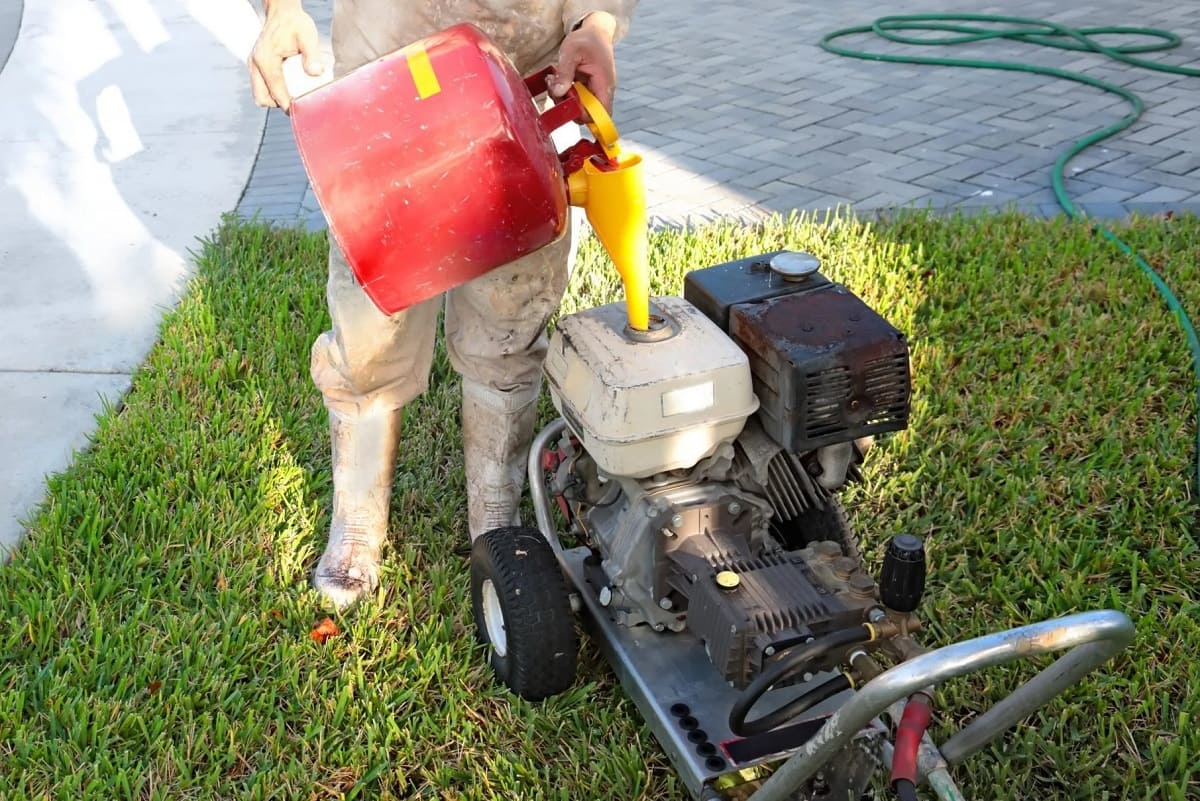

Articles
What Kind Of Oil For Pressure Washer
Modified: October 20, 2024
Looking for articles on what kind of oil to use for your pressure washer? Get expert advice and recommendations for the best oil options to keep your machine running smoothly.
(Many of the links in this article redirect to a specific reviewed product. Your purchase of these products through affiliate links helps to generate commission for Storables.com, at no extra cost. Learn more)
Introduction
When it comes to maintaining and getting the best performance out of your pressure washer, using the correct oil is of utmost importance. Just like any other piece of machinery, pressure washers require proper lubrication to ensure smooth operation, prevent wear and tear, and extend their lifespan.
Using the wrong type of oil or neglecting to change the oil regularly can lead to reduced efficiency, increased fuel consumption, and potential damage to the engine. It is crucial to understand the different types of oil available for pressure washers and how to choose the right one that suits your machine’s needs.
In this article, we will explore the various types of oil suitable for pressure washers, discuss their differences, and provide essential tips on maintaining the oil levels in your machine. By the end, you will have a comprehensive understanding of what kind of oil to use in your pressure washer and how to ensure optimal performance.
Key Takeaways:
- Using the correct oil in your pressure washer is crucial for optimal performance, engine protection, and fuel efficiency. Regular oil changes and proper maintenance ensure longevity and reliability.
- Whether it’s conventional, synthetic, or blended oil, choosing the right viscosity and following manufacturer guidelines is key to maintaining your pressure washer’s efficiency. Proper oil maintenance contributes to reliability and satisfaction.
Read more: What Kind Of Soap To Use In Pressure Washer
Importance of Using the Correct Oil in a Pressure Washer
Using the correct oil in your pressure washer is essential for several reasons. Here are some key reasons why using the right oil is crucial for the proper functioning of your machine:
- Optimal Performance: The right oil provides the necessary lubrication to the internal components of your pressure washer, allowing them to move freely and smoothly. This ensures that your machine operates at its peak performance, delivering the desired power and pressure.
- Engine Protection: The correct oil creates a protective film that prevents metal-to-metal contact and reduces friction, thus minimizing wear and tear on the engine components. This extends the lifespan of your pressure washer and prevents costly repairs.
- Fuel Efficiency: Using the right oil reduces the internal resistance within the engine, enabling it to run more efficiently. This can result in improved fuel economy, saving you money in the long run.
- Temperature Regulation: Pressure washers generate a significant amount of heat during operation. The correct oil helps to dissipate this heat and maintain optimal operating temperatures, preventing overheating and potential damage to the engine.
- Manufacturer’s Warranty: Using the recommended oil specified by the manufacturer ensures that you comply with warranty requirements. Using improper or non-approved oils may void your warranty, leaving you responsible for any repairs or replacements.
In summary, using the correct oil in your pressure washer is crucial for optimal performance, engine protection, fuel efficiency, temperature regulation, and warranty compliance. Neglecting to use the proper oil can result in poor performance, increased fuel consumption, potential damage to the engine, and the loss of warranty coverage. It’s always best to refer to your pressure washer’s user manual or consult the manufacturer for the recommended type and viscosity of oil to use.
Understanding the Different Types of Oil for Pressure Washers
When it comes to choosing the right oil for your pressure washer, you’ll encounter different options in the market. Here are the main types of oil commonly used in pressure washers:
-
Conventional Oil:
Conventional oil, also known as mineral oil, is derived from crude oil through a refining process. It is the most basic and affordable type of oil available for pressure washers. Conventional oil offers decent lubrication but may break down faster under high temperatures and heavy usage.
-
Synthetic Oil:
Synthetic oil is artificially made through chemical processes. It offers several advantages over conventional oil, including better lubrication, higher resistance to breakdown under extreme temperatures, improved engine protection, and longer oil change intervals. Synthetic oil is generally more expensive but provides superior performance and is ideal for pressure washers used in demanding applications.
-
Read more: What Oil Does A Ryobi Pressure Washer Use
Blended Oil:
Blended oil is a combination of conventional and synthetic oil. It offers a balance between cost-effectiveness and improved performance. Blended oil provides better lubrication and protection compared to conventional oil while being more affordable than full synthetic oil. It is a popular choice for pressure washers that require better performance but have budget constraints.
When choosing the type of oil for your pressure washer, consider factors such as the operating conditions, frequency of use, and manufacturer recommendations. If you use your pressure washer for heavy-duty tasks or in extreme weather conditions, synthetic or blended oil is often the recommended choice for better performance and protection. However, for occasional or lighter use, conventional oil may suffice.
Additionally, always check the oil specifications mentioned in your pressure washer’s user manual or consult the manufacturer for their specific recommendations. They will provide the required oil type, viscosity, and any other guidelines to ensure optimal performance and longevity of your pressure washer.
Conventional Oil for Pressure Washers
Conventional oil, also known as mineral oil, is a widely used option for lubricating pressure washers. It is derived from crude oil and undergoes a refining process to remove impurities and improve its performance. Here’s what you need to know about conventional oil:
1. Lubrication: Conventional oil provides sufficient lubrication to the internal components of a pressure washer’s engine. It forms a protective barrier that reduces friction and wear between the moving parts, ensuring smooth operation and minimizing the risk of damage.
2. Cost: Conventional oil is generally more affordable compared to synthetic or blended oils. This makes it an attractive option for those on a budget or for pressure washers used intermittently or with light-duty applications.
3. Temperature Performance: One drawback of conventional oil is its lower resistance to higher temperatures compared to synthetic oils. It may break down and oxidize more quickly under extreme heat, reducing its effectiveness over time. Therefore, it’s important to monitor the operating temperature and change the oil more frequently if your pressure washer operates in hot conditions or for prolonged periods.
4. Oil Change Intervals: Depending on usage, conventional oil may require more frequent oil changes compared to synthetic oils. Manufacturer recommendations should be followed to determine the appropriate intervals for oil changes. Regular oil changes help maintain the performance and longevity of the pressure washer’s engine by removing contaminants and replenishing the lubricating properties of the oil.
5. Compatibility: Conventional oil is compatible with most pressure washer engines. However, it’s crucial to check your pressure washer’s user manual or the manufacturer’s recommendations to ensure compatibility before using conventional oil.
While conventional oil may not offer the advanced benefits of synthetic or blended oils, it is still a viable option for many pressure washer owners. It provides adequate lubrication, is cost-effective, and is readily available. However, for heavy-duty applications, prolonged usage, or extreme temperature conditions, upgrading to synthetic or blended oil may be beneficial to ensure better performance and protection for your pressure washer’s engine.
Always follow manufacturer guidelines and recommendations for oil types, viscosities, and change intervals to ensure optimal performance and longevity of your pressure washer’s engine.
Synthetic Oil for Pressure Washers
Synthetic oil is a premium option for lubricating pressure washers. It is chemically engineered to offer superior performance and protection compared to conventional oil. Here’s what you need to know about synthetic oil:
1. Enhanced Lubrication: Synthetic oil provides exceptional lubrication, reducing friction and wear on the internal components of your pressure washer’s engine. It forms a durable protective layer that withstands high temperatures and heavy loads, ensuring smoother operation and extended engine life.
2. Temperature Resistance: One of the significant advantages of synthetic oil is its ability to withstand extreme temperatures without breaking down. It maintains its viscosity and lubricating properties even in hot conditions, reducing the risk of engine damage. This makes synthetic oil an excellent choice for pressure washers that operate in demanding environments or for prolonged periods.
3. Oxidation and Deposit Control: Synthetic oil has better resistance to oxidation and the formation of deposits compared to conventional oil. This means that it is less prone to breakdown and the build-up of sludge or varnish inside the engine. This ensures cleaner internal components and maintains optimal engine performance.
4. Extended Oil Change Intervals: Synthetic oil typically allows for longer oil change intervals compared to conventional oil. The exact duration will depend on factors such as the type of synthetic oil, operating conditions, and manufacturer recommendations. Longer oil change intervals can lead to cost savings and reduced maintenance frequency.
5. Compatibility: Synthetic oil is compatible with most pressure washer engines. However, it’s essential to refer to your pressure washer’s user manual or consult the manufacturer to ensure compatibility before using synthetic oil.
While synthetic oil offers several advantages, it is generally more expensive than conventional oil. However, the improved performance, temperature resistance, and extended oil change intervals can justify the higher price tag, especially for those who use their pressure washers frequently or in challenging operating conditions.
It is important to note that not all synthetic oils are the same, as they come in different formulations and viscosities. Consult your pressure washer’s user manual or manufacturer for the recommended type and viscosity of synthetic oil to use for optimal performance and protection.
By choosing synthetic oil for your pressure washer, you can ensure enhanced lubrication, better temperature resistance, reduced deposits, extended oil change intervals, and ultimately, improved performance and longevity of your machine.
Blended Oil for Pressure Washers
Blended oil is a popular option that combines the benefits of both conventional and synthetic oils. It offers a balanced solution for pressure washer lubrication, providing improved performance without the high cost of full synthetic oil. Here’s what you need to know about blended oil:
1. Performance: Blended oil combines the lubricating properties of conventional oil and the enhanced performance of synthetic oil. It provides better protection against friction and wear, ensuring optimal engine performance and longevity. Blended oil is suitable for a wide range of pressure washer applications, from light-duty to moderate-duty usage.
2. Cost-effectiveness: Blended oil is generally more affordable compared to full synthetic oil. It offers a cost-effective alternative for those who want improved performance without breaking the bank. If you have budget constraints but still want better lubrication and protection for your pressure washer, blended oil is a reliable choice.
3. Temperature Resistance: Blended oil offers improved temperature resistance compared to conventional oil. While not as resistant as full synthetic oil, it can still withstand higher temperatures and maintain its viscosity and lubricating properties. This makes it suitable for pressure washers used in moderate to high-temperature environments.
4. Compatibility: Blended oil is compatible with most pressure washer engines. However, it is essential to consult your pressure washer’s user manual or manufacturer’s recommendations to ensure compatibility before using blended oil.
5. Oil Change Intervals: The oil change intervals for blended oil may be longer than those for conventional oil but shorter than those for full synthetic oil. The specific intervals will depend on the blended oil’s composition, usage, and manufacturer guidelines. Regular oil changes are still necessary for maintaining optimal performance and extending the life of your pressure washer’s engine.
Blended oil offers a practical solution for pressure washer owners who want enhanced lubrication and protection without the higher cost of full synthetic oil. It strikes a balance between performance and affordability, making it a popular choice for a wide range of applications.
As with other types of oil, refer to the pressure washer’s user manual or manufacturer’s recommendations to determine the appropriate type and viscosity of blended oil to use. By using the recommended blend, you can ensure better performance, protection, and longevity for your pressure washer’s engine.
Choosing the Right Oil Viscosity for Your Pressure Washer
Selecting the correct oil viscosity is crucial for ensuring optimal performance and protection for your pressure washer’s engine. Viscosity refers to the oil’s thickness or resistance to flow at different temperatures. Here are some factors to consider when choosing the right oil viscosity:
1. Temperature Range: Consider the average temperature range in which your pressure washer will be operating. If you live in a colder climate, you’ll want to choose an oil viscosity that provides adequate lubrication at lower temperatures. Conversely, if you’re in a warmer climate, you’ll need an oil viscosity that can withstand higher temperatures without thinning too much.
2. User Manual Recommendations: Always refer to your pressure washer’s user manual for specific recommendations regarding oil viscosity. The manufacturer will provide guidelines based on the engine’s design and operating conditions, ensuring you choose the appropriate oil viscosity for your machine.
3. Single-Grade vs. Multi-Grade Oil: Single-grade oils, such as SAE 30, have a consistent viscosity at all temperatures. They are suitable for pressure washers that operate primarily in a specific temperature range. Multi-grade oils, such as 10W-30, have additives that allow them to maintain their viscosity across a wider temperature range. They provide more flexibility and are often the recommended choice for pressure washer engines.
4. Cold-Start Performance: If you frequently start your pressure washer in cold weather, look for an oil viscosity that ensures easy cold starts. Cold weather can increase the viscosity, making it harder for the engine to turn over. Choosing an oil with good cold-start performance will help prevent damage to the engine and ensure a smooth start-up.
5. Operating Conditions: Consider the intensity and duration of your pressure washer’s usage. If you frequently use it for heavy-duty tasks or for extended periods, a higher viscosity oil may be necessary to provide better engine protection under these demanding conditions.
By choosing the right oil viscosity, you can ensure that your pressure washer’s engine is properly lubricated, protected, and performs optimally in various temperature conditions. It’s essential to follow the manufacturer’s recommendations and guidelines to maximize the efficiency, longevity, and reliability of your pressure washer.
When choosing oil for your pressure washer, look for a high-quality detergent oil with a viscosity grade recommended by the manufacturer. Always check the owner’s manual for specific oil requirements.
Recommended Oil Brands for Pressure Washers
Choosing the right oil brand is just as important as selecting the correct oil viscosity for your pressure washer. Quality oil brands offer superior performance, better protection, and increased longevity for your machine’s engine. Here are some recommended oil brands for pressure washers:
- 1. Briggs & Stratton: Briggs & Stratton is a well-known brand in the power equipment industry. They offer a range of high-quality oils specifically formulated for pressure washers. Their oils are designed to provide excellent lubrication, protect against wear, and maintain optimal engine performance.
- 2. Generac: Generac is another reputable brand that manufactures pressure washers and the related accessories. They offer a selection of oils tailored to their pressure washers, ensuring compatibility and optimal performance. Generac oils are designed to withstand the demands of pressure washing and provide reliable lubrication.
- 3. Honda: Honda is a trusted brand known for manufacturing reliable and durable engines. They also produce oils specifically formulated for their pressure washers and other power equipment. Honda oils are designed to meet the rigorous demands of their engines, offering exceptional lubrication and protection.
- 4. Mobil 1: Mobil 1 is a reputable brand known for producing high-performance synthetic oils. While not specifically marketed for pressure washers, Mobil 1 oils offer excellent protection and lubrication properties that can benefit pressure washer engines. Ensure that the viscosity and specifications align with your machine’s requirements.
- 5. Shell Rotella: Shell Rotella is a trusted brand known for its high-quality motor oils and lubricants. While primarily targeted towards diesel engines, Shell Rotella oils can also be suitable for certain pressure washer engines, especially those with higher operating temperatures or heavy-duty usage.
While these brands are recommended for their quality and performance, it’s always a good idea to consult your pressure washer’s user manual or the manufacturer’s recommendations. They may have specific requirements or recommendations for oil brands and types that align with your machine’s specifications.
Remember that using the recommended oil brand and following the manufacturer’s guidelines will help ensure optimal performance, protection, and reliability for your pressure washer’s engine.
How to Change the Oil in a Pressure Washer
Regularly changing the oil in your pressure washer is essential to maintain optimal performance and extend the lifespan of your machine. Here are the steps to follow when changing the oil in a pressure washer:
- 1. Preparation: Start by gathering the necessary tools and materials for the oil change. You’ll typically need a socket wrench or oil drain plug wrench, a container to catch the oil, a funnel, and the appropriate replacement oil.
- 2. Safety First: Before working on your pressure washer, make sure it is turned off and the engine is cool. This will prevent accidental starts and protect you from hot surfaces.
- 3. Locate the Oil Drain Plug: Look for the oil drain plug underneath the pressure washer’s engine. Refer to the user manual for the exact location if unsure. Some models may require the removal of a protective cover or shield to access the drain plug.
- 4. Position the Catch Container: Place the catch container beneath the oil drain plug to collect the old oil. Ensure that the container is of sufficient size to hold the entire volume of oil.
- 5. Remove the Oil Drain Plug: Using a socket wrench or oil drain plug wrench, carefully loosen and remove the oil drain plug. Allow the old oil to drain completely into the catch container. Be cautious as the oil may be hot.
- 6. Replace the Oil Filter(Optional): Some pressure washers have an oil filter that may need to be replaced during an oil change. Consult the user manual to determine if your pressure washer has an oil filter and if it needs replacement. If required, remove the old oil filter and install a new one according to the manufacturer’s instructions.
- 7. Reinstall the Drain Plug: Once the old oil has completely drained, securely tighten the oil drain plug back into place. Be careful not to overtighten.
- 8. Add New Oil: Using a funnel, slowly pour the appropriate amount and type of replacement oil into the oil fill hole. Refer to the user manual for the recommended oil quantity and type. Take care not to overfill the engine with oil.
- 9. Check Oil Level: After adding the new oil, check the oil level using the dipstick or sight glass, if applicable. The oil level should be within the recommended range indicated by the manufacturer.
- 10. Clean Up: Wipe away any spilled oil and ensure all connections are tight and secure. Properly dispose of the old oil according to local regulations or take it to a recycling center.
Remember to consult your pressure washer’s user manual for model-specific instructions and any additional steps required for changing the oil. Following the manufacturer’s guidelines will help ensure a successful and hassle-free oil change.
Maintaining the Oil Levels in Your Pressure Washer
Maintaining proper oil levels in your pressure washer is crucial for optimal performance and the longevity of your machine’s engine. Regularly checking and maintaining the oil levels is a simple yet essential part of pressure washer maintenance. Here are some tips to help you maintain the oil levels effectively:
- 1. Check the Oil Level: Start by checking the oil level in your pressure washer’s engine. Most pressure washers have a dipstick or a sight glass to indicate the oil level. Follow the manufacturer’s guidelines to determine the correct oil level range.
- 2. Check for Contaminants: While checking the oil level, inspect the oil for any signs of contamination or debris. If you notice milky or discolored oil, it may indicate water or other contaminants present. In such cases, it is crucial to drain and replace the oil to maintain the engine’s integrity.
- 3. Monitor the Oil Color and Consistency: The oil should be relatively clear and have a consistent texture. If you notice a significant change in color or viscosity, it may indicate the need for an oil change or further inspection of the engine.
- 4. Follow Manufacturer’s Recommendations: Refer to your pressure washer’s user manual or the manufacturer’s recommendations regarding oil change intervals and oil type. Following these guidelines ensures that your pressure washer is well-maintained and performs optimally.
- 5. Top-Up the Oil: If the oil level is below the recommended range, add the appropriate type and amount of oil to bring it back to the desired level. Be cautious not to overfill the engine, as it may lead to excessive foaming or engine damage.
- 6. Change the Oil Regularly: Set a schedule to change the oil in your pressure washer periodically, following the manufacturer’s recommended intervals. Regular oil changes help remove contaminants and maintain the lubricating properties of the oil, ensuring proper engine operation.
- 7. Store Properly: When storing your pressure washer for an extended period, it is advisable to drain the oil completely. This prevents any oil degradation or contamination during storage. However, make sure to follow the manufacturer’s guidelines for proper storage procedures.
- 8. Regular Maintenance: In addition to oil level maintenance, perform other routine maintenance tasks such as cleaning the air filter, inspecting spark plugs, and checking for leaks. Keeping your pressure washer in good overall condition contributes to the longevity and consistent performance of the machine.
By monitoring and maintaining the oil levels in your pressure washer, you can ensure optimal performance, engine protection, and maximize the lifespan of your machine. Regular oil checks and changes are essential for the continued reliability and efficiency of your pressure washer.
Read also: 15 Best Pressure Washer Pump Oil For 2025
Conclusion
Using the correct oil in your pressure washer is essential for ensuring optimal performance, protecting the engine, and prolonging the lifespan of your machine. Whether you choose conventional oil, synthetic oil, or a blended oil, selecting the right viscosity and following manufacturer guidelines are key to maintaining your pressure washer’s efficiency.
Conventional oil offers a cost-effective lubrication option, while synthetic oil provides enhanced performance, temperature resistance, and extended oil change intervals. Blended oil strikes a balance between performance and affordability. Consider factors such as operating conditions, frequency of use, and manufacturer recommendations when choosing the appropriate oil type for your pressure washer.
Regularly changing the oil in your pressure washer is crucial for maintaining its performance and protecting the engine. Follow the recommended intervals, consult your user manual for specific instructions, and use the appropriate tools and materials to ensure a proper oil change.
To maintain the oil levels in your pressure washer, regularly check the oil level, monitor the oil color and consistency, and top up the oil when necessary. Adhere to the manufacturer’s guidelines for oil change intervals and consider storing your pressure washer properly when not in use.
Using recommended oil brands such as Briggs & Stratton, Generac, Honda, Mobil 1, or Shell Rotella can provide added assurance of quality and performance. However, always consult your pressure washer’s user manual or manufacturer recommendations for the specific oil brand and viscosity that best suits your machine.
In conclusion, by understanding the importance of using the correct oil, selecting the right viscosity, regularly changing the oil, maintaining proper oil levels, and following manufacturer guidelines, you can ensure the optimal performance and longevity of your pressure washer. Proper oil maintenance will contribute to the efficiency, reliability, and overall satisfaction in using your pressure washer for a variety of cleaning tasks.
Now that you've got the scoop on the best oils for your pressure washer, why not boost its performance even further? Dive into our next read where you'll discover essential add-ons every pressure washer owner should consider. From practical attachments to game-changing upgrades, these accessories are sure to make any cleaning task a breeze. Don't miss out on maximizing your pressure washer's potential!
Frequently Asked Questions about What Kind Of Oil For Pressure Washer
Was this page helpful?
At Storables.com, we guarantee accurate and reliable information. Our content, validated by Expert Board Contributors, is crafted following stringent Editorial Policies. We're committed to providing you with well-researched, expert-backed insights for all your informational needs.
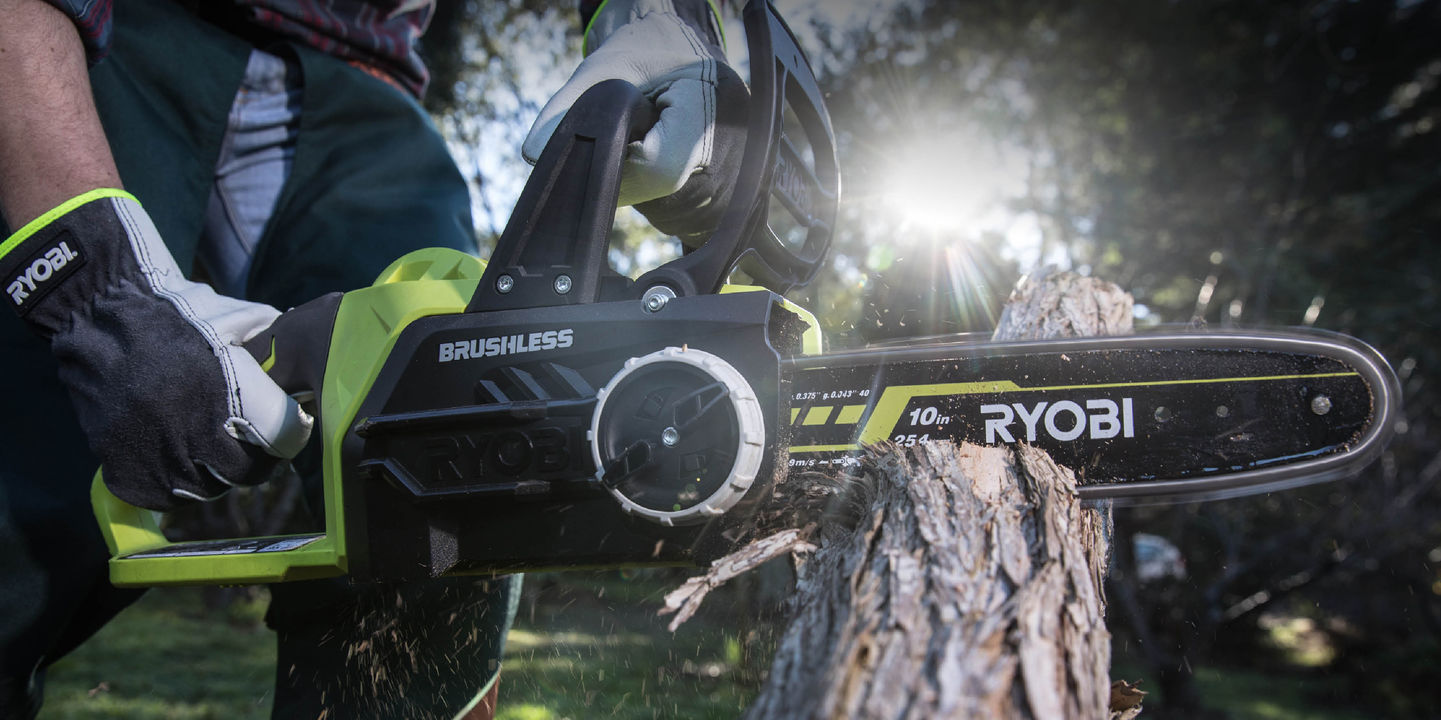
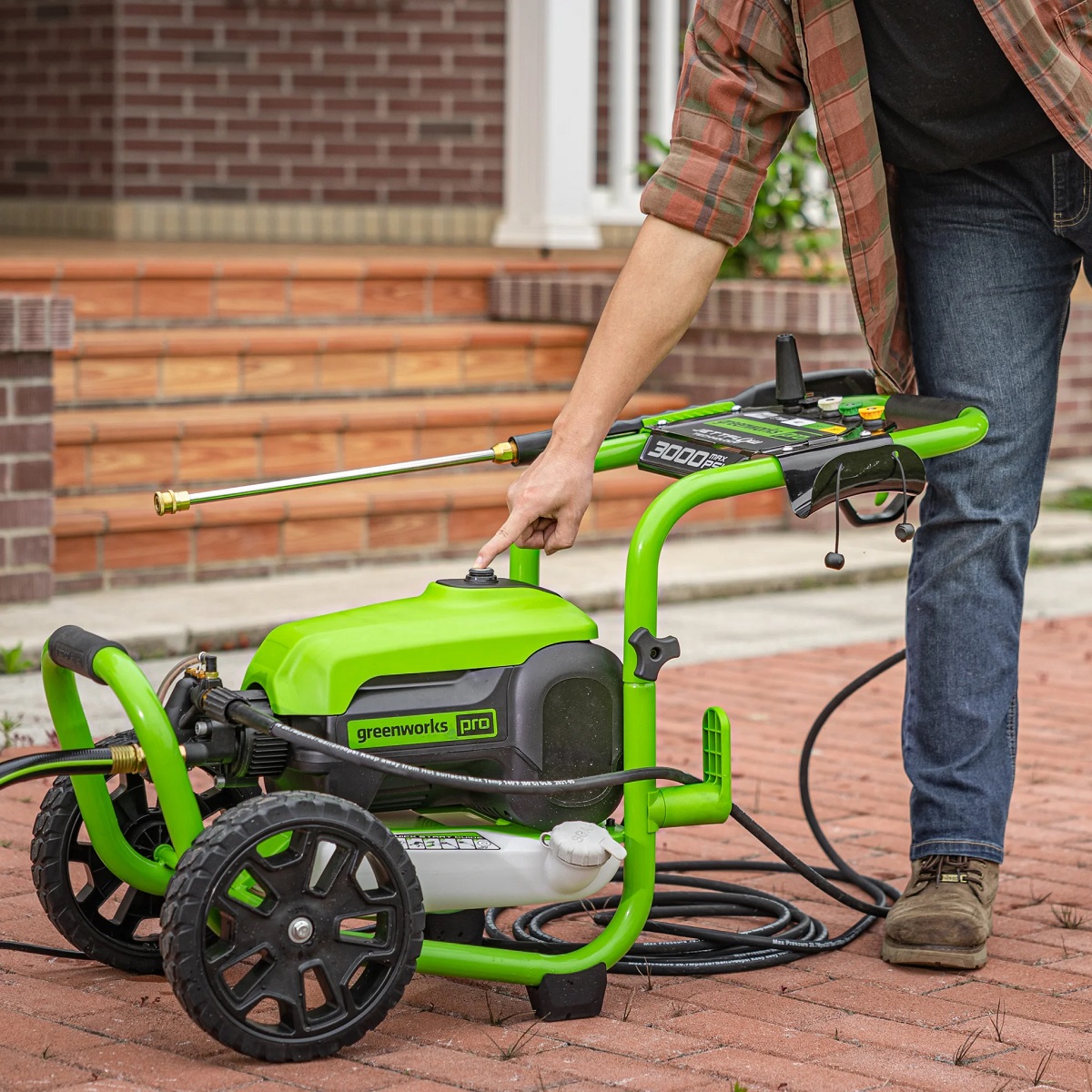
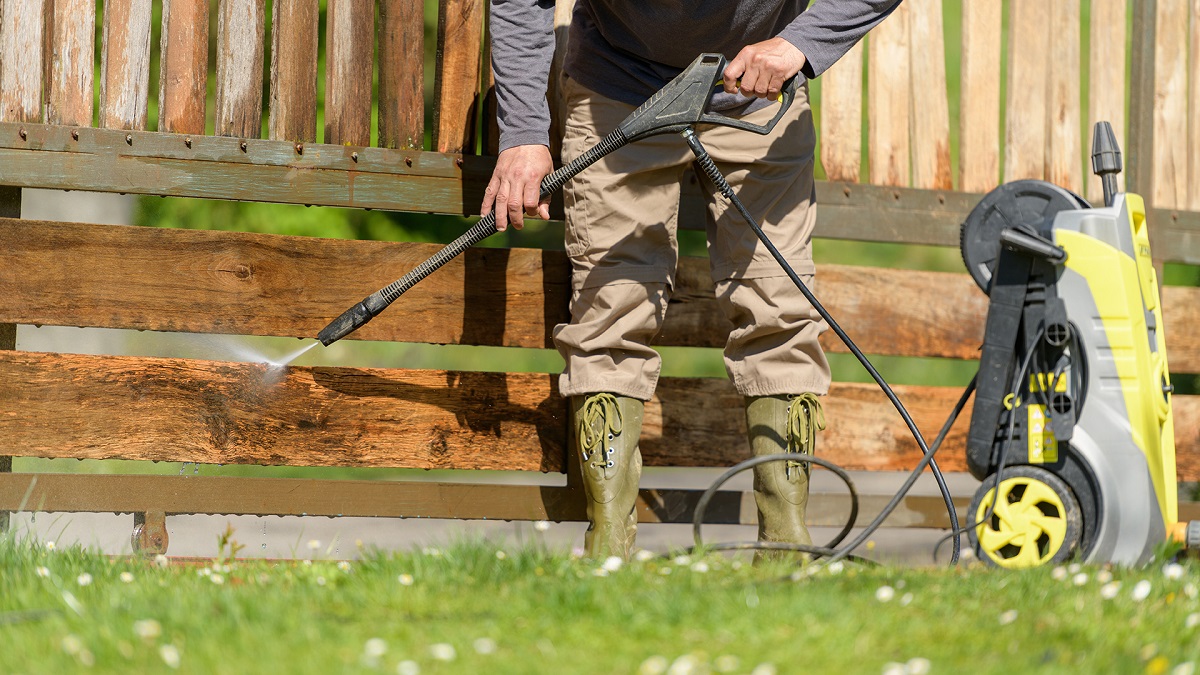

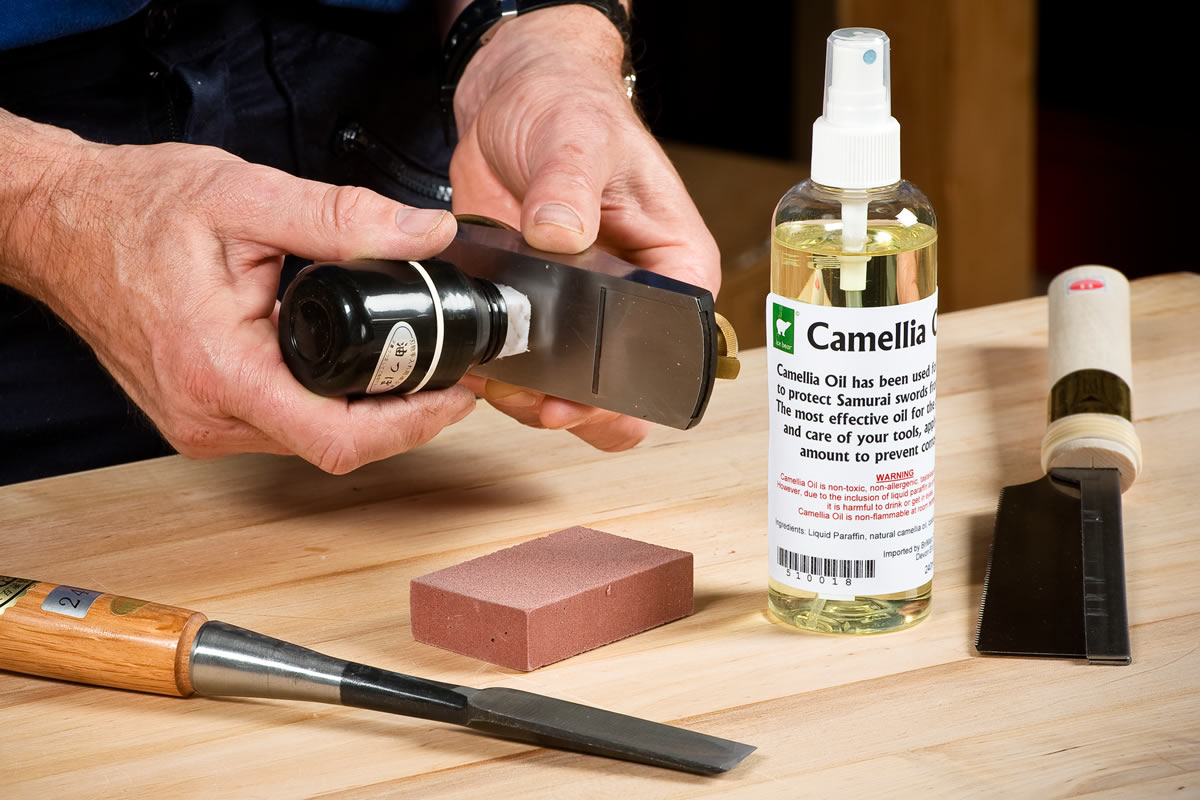

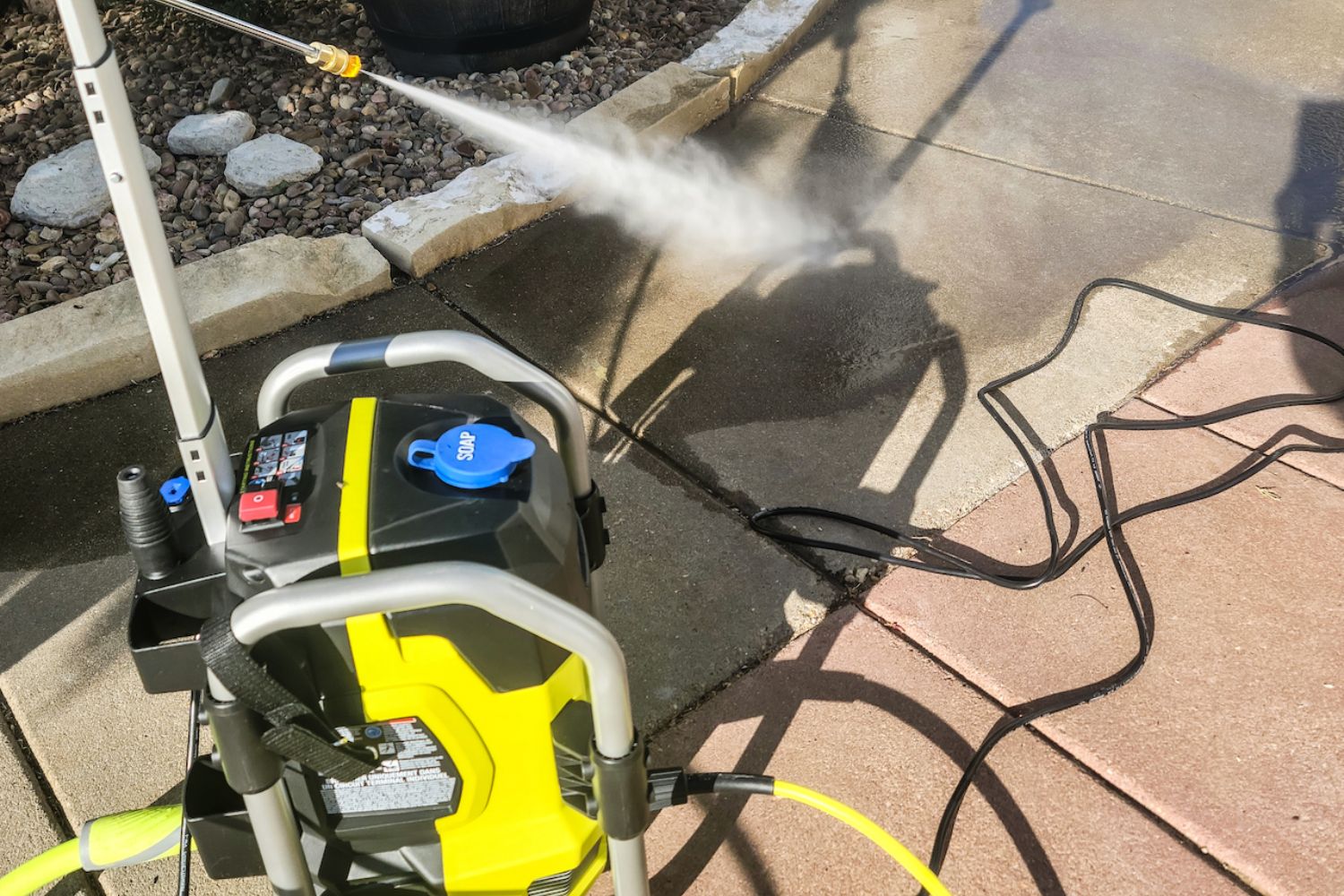
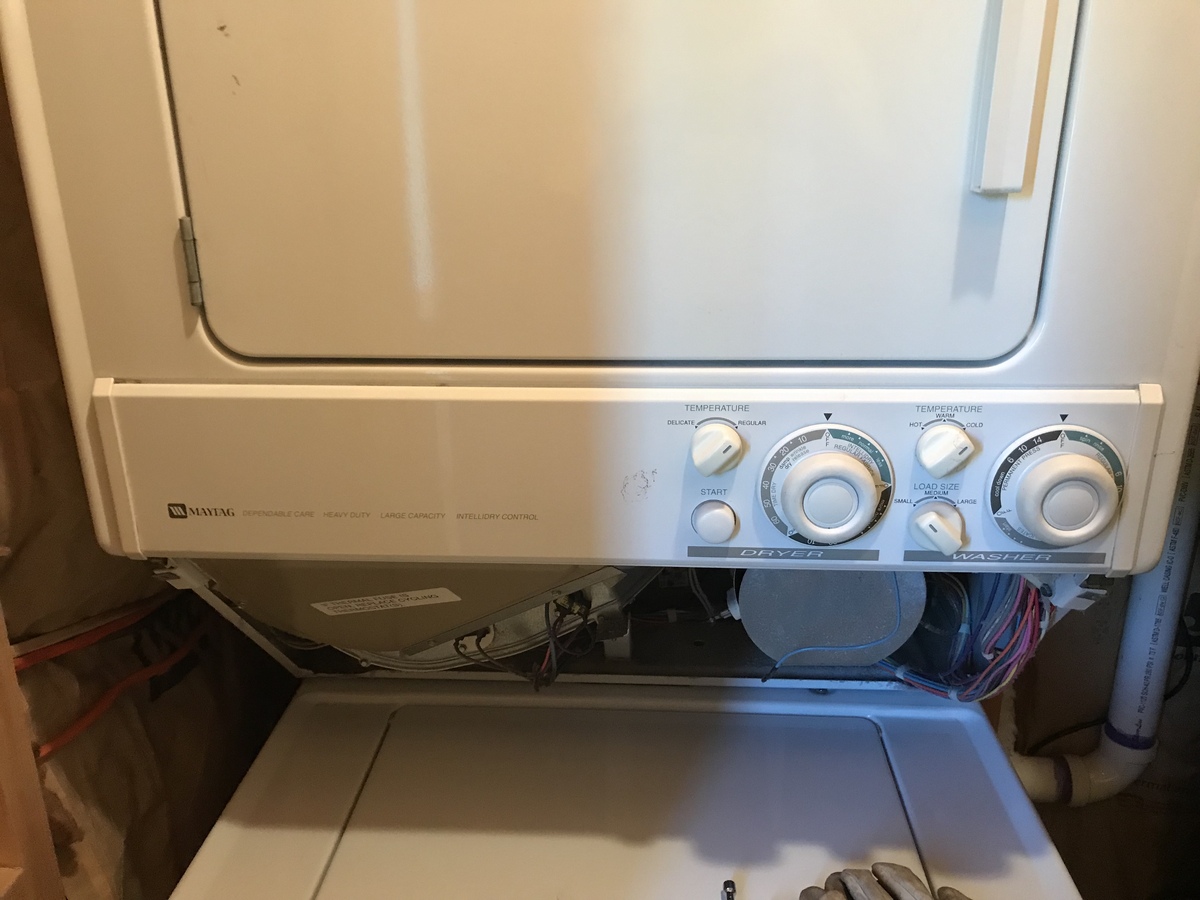
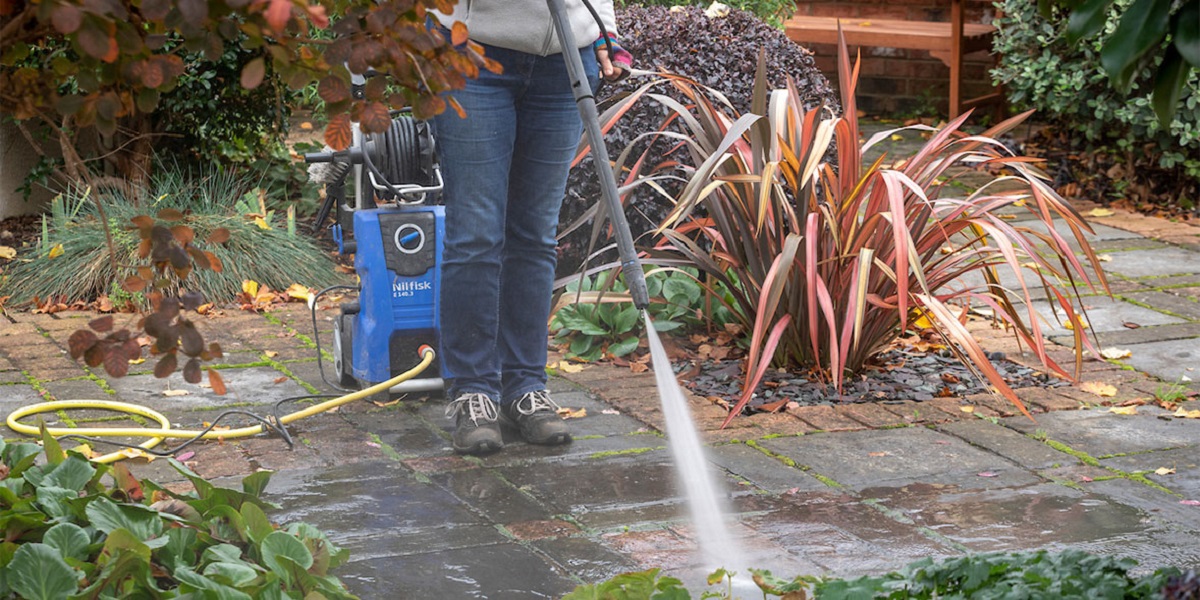
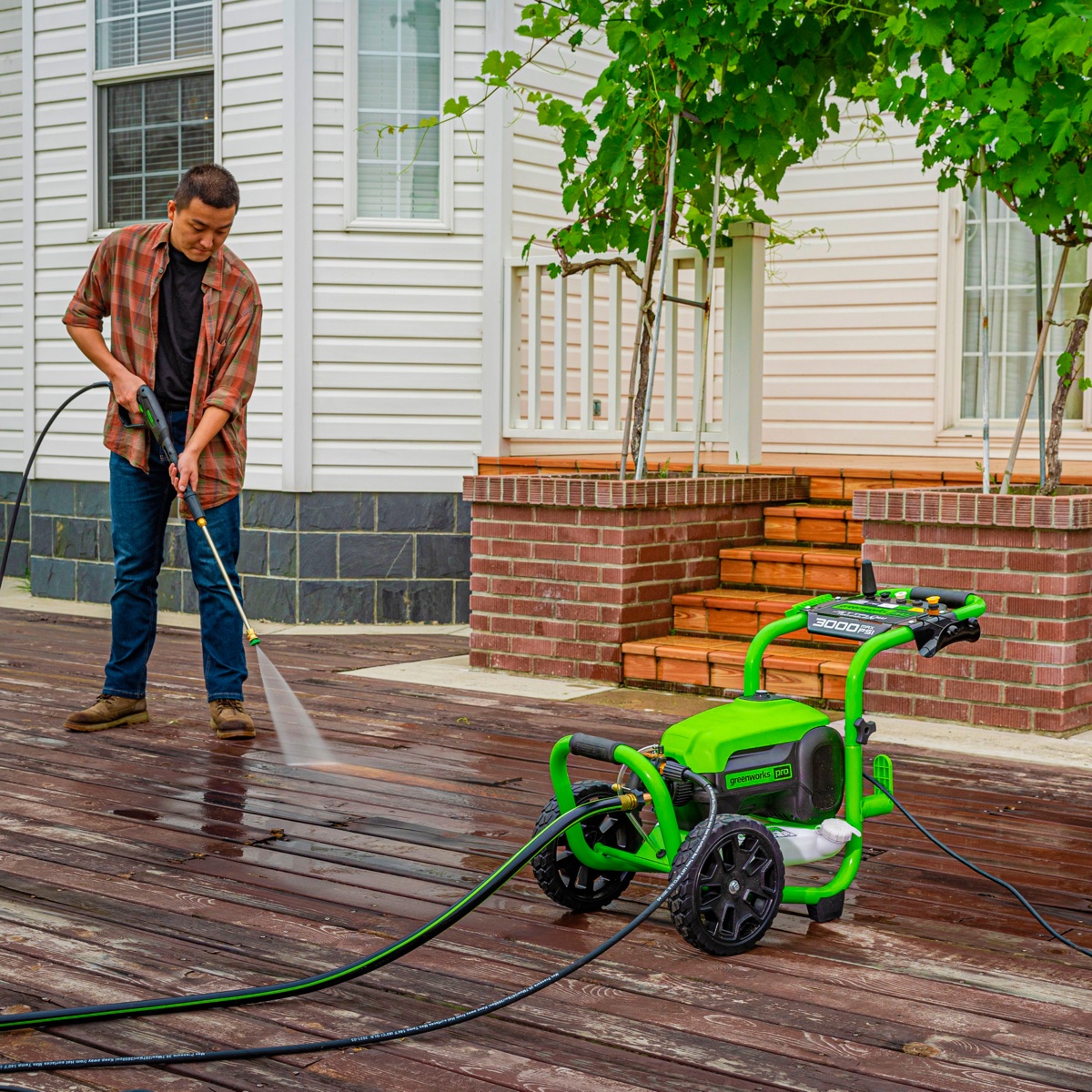
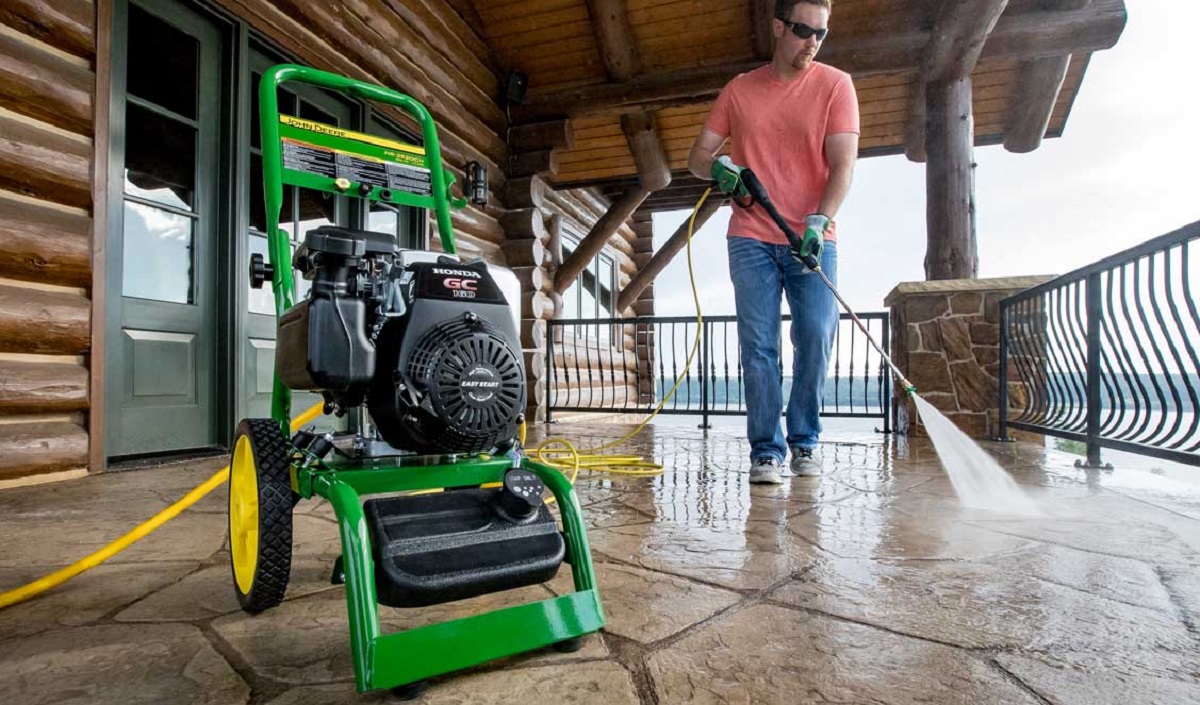


0 thoughts on “What Kind Of Oil For Pressure Washer”